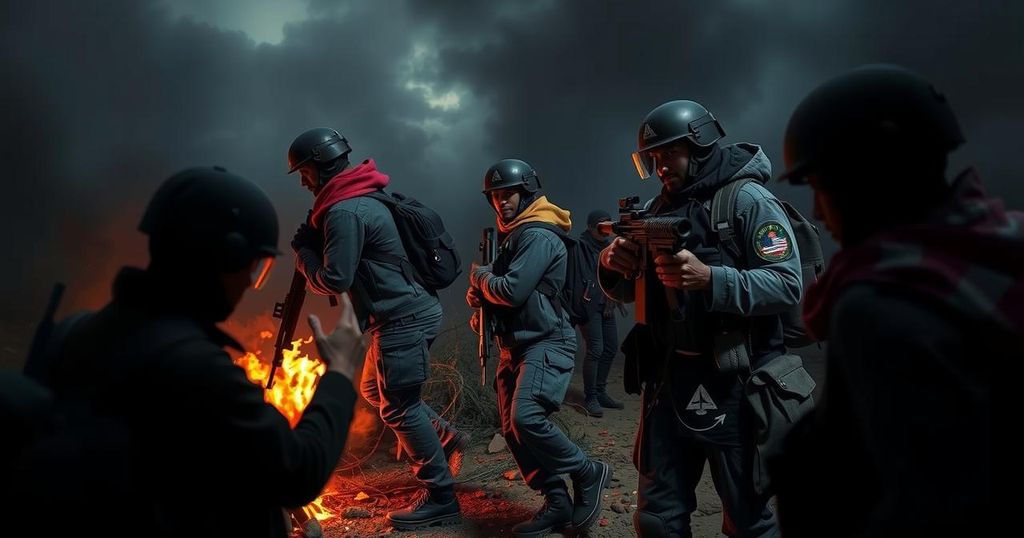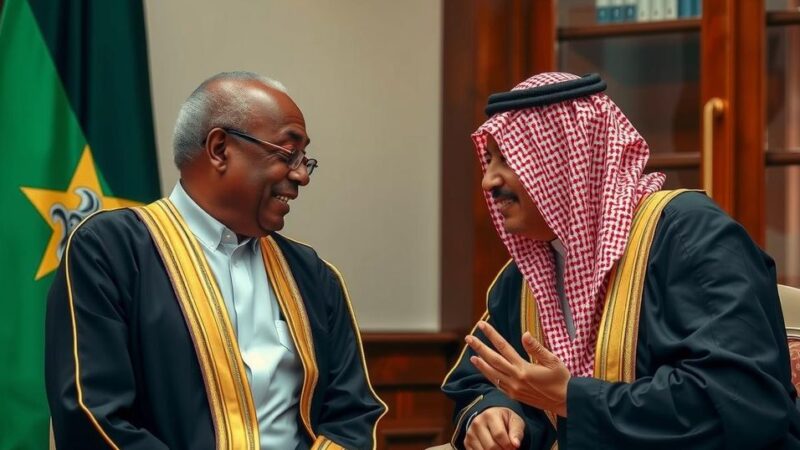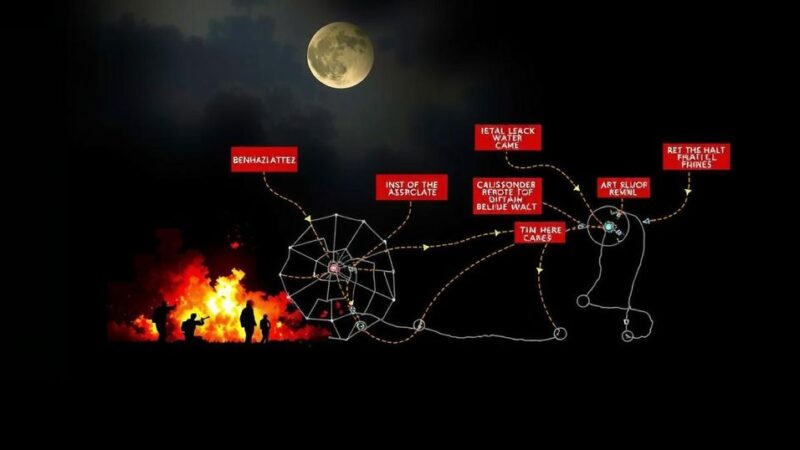Egyptian President Abdel Fattah al-Sisi has proposed a two-day ceasefire to allow for the exchange of four Israeli hostages held by Hamas for Palestinian prisoners. This initiative follows a surge in violence that has resulted in extensive casualties in Gaza, with ongoing international mediation efforts involving the U.S. and Qatar. Al-Sisi emphasized the need for further negotiations towards a more enduring ceasefire. The humanitarian situation in northern Gaza is deteriorating, prompting UN concerns regarding the treatment of civilians amidst military operations.
In a bid to alleviate the ongoing humanitarian crisis in Gaza, Egyptian President Abdel Fattah al-Sisi has put forth a proposal for a two-day ceasefire that would facilitate the exchange of four Israeli hostages held by Hamas for various Palestinian prisoners. President al-Sisi announced this initiative amid escalating violence, with recent Israeli military operations resulting in the deaths of at least 45 Palestinians across the region. This announcement coincided with renewed international efforts in Qatar aimed at de-escalating the conflict, involving high-level discussions with officials from the CIA and Israeli intelligence agency, Mossad. During a joint press conference in Cairo with Algerian President Abdelmadjid Tebboune, President al-Sisi emphasized the importance of resuming negotiations within ten days following the temporary ceasefire, with the ultimate goal of achieving a permanent cessation of hostilities. While there has been no immediate response from Israel or Hamas regarding the proposed ceasefire, a Palestinian official involved in the mediation efforts expressed an expectation that Hamas would respond positively to the new offers, although the group maintains that any agreement must culminate in an end to the war and the withdrawal of Israeli forces from Gaza. In contrast, Israel has asserted that the conflict cannot be resolved until Hamas is completely eliminated both as a military force and a governing body in the region. The U.S., alongside Qatar and Egypt, have taken a leading role in facilitating negotiations following the outbreak of conflict on October 7 last year when Hamas launched an unprecedented attack on southern Israel, resulting in significant casualties and the taking of over 250 hostages. The situation in Gaza has deteriorated markedly, with health officials reporting that the death toll from Israeli counter-offensives approaches 43,000, leaving the area in dire humanitarian straits. Recent reports indicate that efforts in Doha will target a temporary cessation of hostilities, with submissions for the release of Israeli hostages in exchange for Palestinian prisoners. The overarching aim remains an elusive and enduring ceasefire in the midst of mounting violence. As of Sunday, substantial casualties continue to impact northern Gaza, where Israeli troops are actively engaged in combat operations against Hamas fighters. The United Nations has articulated alarm regarding the dire humanitarian conditions for Palestinian civilians in this area, describing them as “unbearable” and condemning the conflict’s apparent neglect of international humanitarian law. United Nations Secretary-General Antonio Guterres expressed profound concern over the staggering levels of destruction and loss of life, highlighting the difficulties faced by civilians trapped amid ongoing hostilities. The Israeli military maintains that its operations adhere to international law and targets Hamas operatives who exploit civilian populations, while the latter accuses Israel of obstructing humanitarian aid and misappropriating resources meant for civilian relief. Reports also emerged of specific airstrikes, particularly in Jabalia, where significant casualties have been recorded, underscoring the ongoing peril faced by civilians. In one such incident, an airstrike on a school resulted in numerous fatalities and injuries, drawing further scrutiny and condemnation.
The longstanding conflict between Israel and Hamas has escalated dramatically, particularly following the violent attacks by Hamas on October 7, 2022. This conflict has not only resulted in severe military and civilian casualties on both sides but has also triggered widespread humanitarian crises, particularly in the Gaza Strip, which has faced extraordinary levels of destruction and deprivation due to Israeli military operations. Efforts by various nations, including the United States, Qatar, and Egypt, are ongoing in attempts to broker peace and facilitate prisoner exchanges, but achieving a lasting resolution remains a challenging task against the backdrop of entrenched positions by both parties involved.
In conclusion, the proposal by Egypt for a two-day ceasefire represents a significant diplomatic effort aimed at mitigating the profound humanitarian crisis in Gaza and facilitating the exchange of hostages. As the conflict continues to escalate with devastating consequences for civilians, the international community remains engaged in attempts to establish a longer-term resolution to the violence. The situation in northern Gaza remains precarious, with urgent calls for adherence to humanitarian principles amidst the ongoing military actions by Israeli forces.
Original Source: gazette.com






